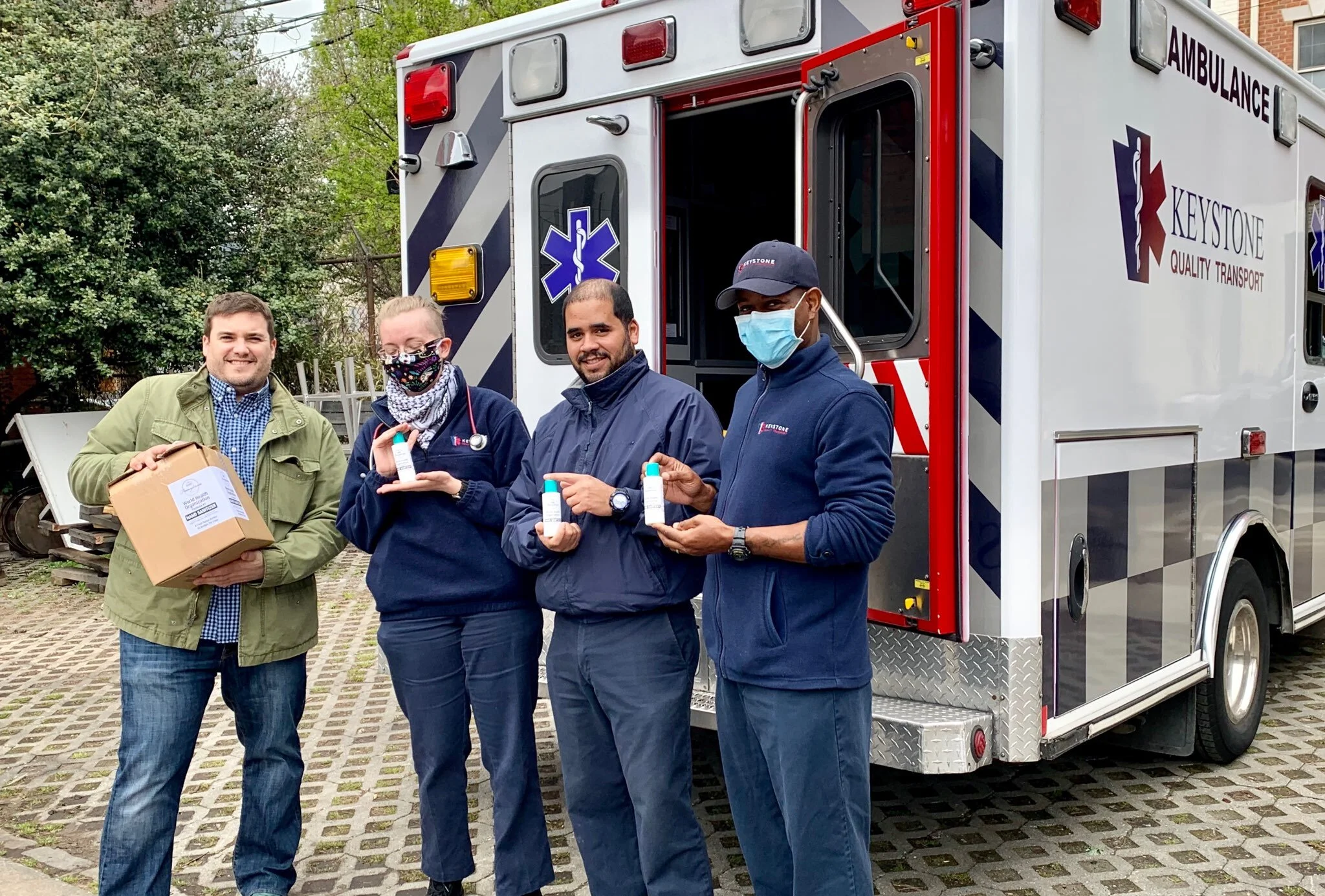Masks and Poetry
I got the alert from Delaware County four times this morning: once each on my work email account, work cell phone, personal email account, and personal cell phone: “Pennsylvania Governor Tom Wolf is urging all Pennsylvanians to wear a mask any time they leave their homes.”
The alert goes on to remind us to reserve scarce N95 respirators and paper masks for medical workers and wear “a cloth or homemade mask for everyday use.”
On Saturday, when I went to pick up groceries curbside, I wore a mask for the first time.
Today on my morning dog walk, of the dozen people I saw, only one — another dog walker whose two shaggy beasts often bark at mine — was wearing one. Last night, after his evening dog walk, my husband reported four out of about 40 people wearing masks. Returning from her run, my daughter reported one of 10.
Back in the before-time (last month), I sometimes used this space to count the people attending borough council and school board and local committee meetings. It was always a low number. That bothered me. But this accounting bothers me a lot more.
I know. Wearing a mask feels socially awkward. It’s a bit physically uncomfortable too.
In a recent, passionately pro-face-mask post, the blogger Maciej Cegłowski (swat.ink/blogger-facemasks) cites discomfort as one of the reasons we should wear masks. “Wearing one out in the world gives you an incentive to get your business done quickly so you can go home, scrub your hands, and paw at your naked face in voluptuous luxury.”
On a more philosophical level, Cegłowski explains that wearing a mask is a visible sign that we care about each other’s health. “It would be great if we had a soap that turned our hands gold for an hour, so everyone could admire our superb hand-washing technique.”
Of course, the main reason to wear one when close to others is the medical evidence that doing so slows the transmission of the coronavirus that causes COVID-19.
Last week, this paper featured an article about the heroic efforts of local sewers (people who sew, not waste conduits) making cloth masks for medical workers to extend the usefulness of their limited N95s. In the short time since, many people have begun sewing masks for their families and neighbors, too. An eleven-year-old friend of mine offered to make one for me, if I could get him some elastic, since I don’t know how to sew.
Unfortunately, I don’t have any elastic.
But I do have old T-shirts. I made a bunch of not-very-good masks the other night by following the directions here: swat.ink/T-shirt-mask.
I wish my masks had cool patterns on them, like a lot of the ones I’m seeing online. There was one old T-shirt with little pictures of the Beatles on it, but I botched that one.
In a poem called “Pandemic Transgressions” in this week’s paper, Margaret Robinson alludes to the first place in Swarthmore you regularly saw people covering their noses and mouths: “Banditry — face mask bandanas at the Co-op.”
Did I forget to mention that it’s National Poetry Month?
April. It’s hard to keep track of these things lately.
But the timing is good! Poetry may be just what we need right now. I’ve seen more poems posted on social media in the last two weeks than I ever remember seeing before. You’ll find several poems in each issue of the Swarthmorean throughout the month, some written in response to our current moment, others not.
This morning, worrying about masks on my dog walk, it occurred to me that a poem is a kind of mask. Even when written in first person, the “I” of a poem is always a persona — not literally the author. In psychoanalyst Carl Jung’s sense, persona is “the mask or façade presented to satisfy the demands of the situation or the environment.”
In a poem, the function of persona is not so much to conceal the poet as to construct a voice best suited to convey some complex and potent truth.
Conveying a complex and potent truth is what the homemade masks we’re wearing do, too. They say that we are living in a moment of crisis, and that our tools are homely and incomplete. They say, too, that we care about one another, that we’re doing whatever we can to help.



